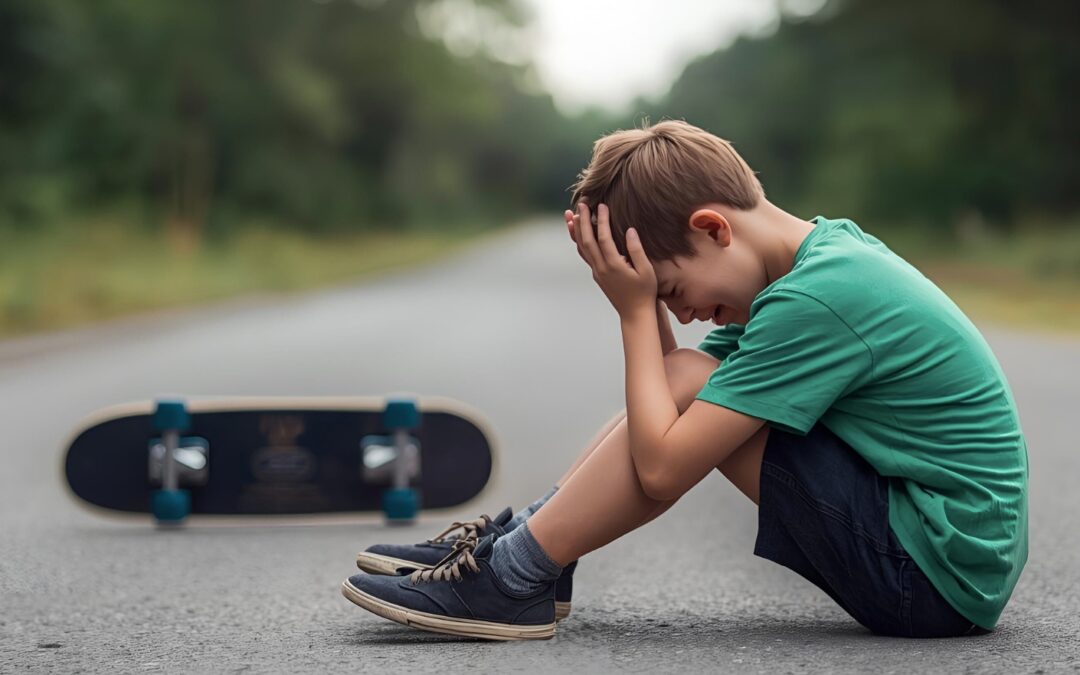Concussions are a common yet often misunderstood injury, particularly when it comes to children. Whether it’s a fall at the playground, a sports-related incident, or an accidental bump to the head, recognising and managing a concussion in children is crucial for their long-term health and well-being. However, concussions in children can present differently than in adults, making it essential for parents to know what to look for and how to support recovery effectively.
Understanding the unique challenges of childhood concussions can empower parents to take the right steps toward ensuring their child’s safety and recovery.
Recognising Concussions in Children
Unlike adults, children may not always be able to articulate how they feel after a head injury. This makes it even more important for parents to be vigilant about recognising the signs of a concussion. Common symptoms in children include:
- Physical Symptoms: Headache, nausea, vomiting, dizziness, sensitivity to light or noise, and fatigue.
- Cognitive Symptoms: Difficulty concentrating, confusion, or appearing “foggy.”
- Emotional Symptoms: Irritability, sadness, or unusual emotional outbursts.
- Sleep Disturbances: Changes in sleep patterns, such as sleeping more or less than usual, or difficulty falling asleep.
In younger children, symptoms may be even more subtle. They might appear unusually tired, lose interest in their favourite activities, or have difficulty with balance and coordination. Babies and toddlers may cry excessively, refuse to eat, or display changes in behaviour that are out of character.
How Symptoms Differ in Children
Children’s brains are still developing, which means their response to a concussion can differ significantly from that of an adult. For instance:
- Delayed Onset of Symptoms: Symptoms in children may not appear immediately after the injury. It could take hours or even days for signs to become noticeable.
- Difficulty Expressing Symptoms: Younger children may struggle to describe their symptoms, such as dizziness or confusion, making it harder to identify the injury.
- Longer Recovery Times: Children often take longer to recover from a concussion compared to adults, as their developing brains are more vulnerable to injury.
Supporting Your Child’s Recovery
If you suspect your child has sustained a concussion, it’s essential to seek medical attention promptly. A healthcare professional can assess the severity of the injury and provide guidance on the next steps. Once a concussion is diagnosed, here are some key ways to support your child’s recovery:
- Rest is Key: Ensure your child gets plenty of physical and cognitive rest. This means avoiding strenuous activities, screen time, and tasks that require intense concentration, such as homework, until symptoms improve.
- Gradual Return to Activities: Once symptoms begin to subside, your child can gradually return to school and light physical activities under the guidance of a healthcare professional. Avoid rushing this process, as returning too soon can worsen symptoms or prolong recovery.
- Monitor Symptoms Closely: Keep a close eye on your child’s symptoms and report any changes to their doctor. If symptoms worsen or new ones appear, seek medical advice immediately.
- Provide Emotional Support: A concussion can be a frightening experience for a child. Reassure them that it’s okay to take time to heal and that they will feel better with rest and care.
- Follow Medical Advice: Adhere to the treatment plan provided by your healthcare professional, which may include follow-up appointments, rehabilitation exercises, or referrals to specialists if needed.
Concussions in children are not something to take lightly, but with the right knowledge and care, parents can play a vital role in their child’s recovery. If you suspect your child has sustained a concussion or if you’d like to learn more about managing head injuries, visit our website or book an appointment with our team at the Sydney Concussion Centre.
Your child’s health and well-being are our top priorities. Let us help you navigate the path to recovery with expert care and guidance.
Take the first step toward recovery today. If you’re experiencing prolonged symptoms or need expert guidance, book an appointment through our website link or contact our office on 18OO CONCUSSION | 1800 266 287.
Our team is here to help you on your recovery journey.



Recent Comments